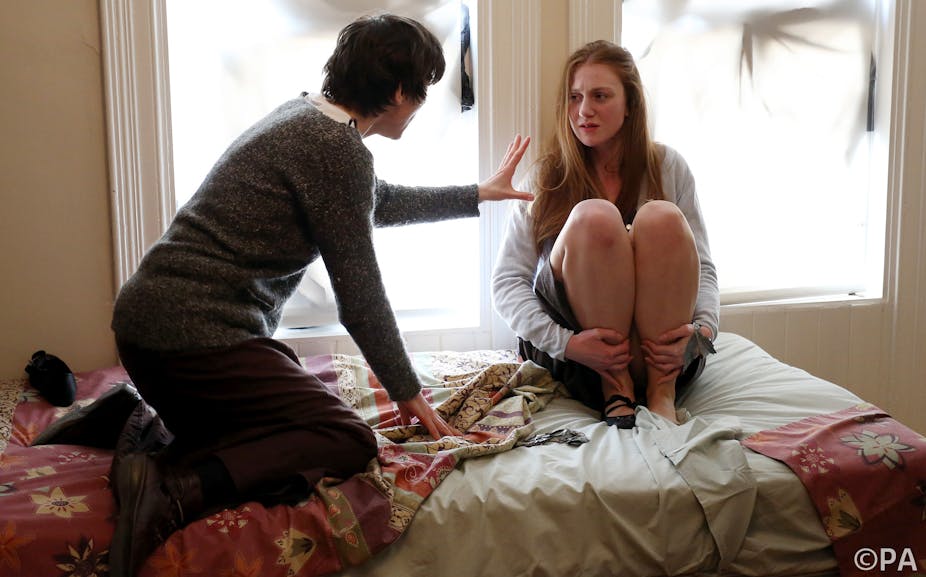An increasing number of people are trying to cope with depression and bipolar in the UK. But we also have an over-reliance on drugs and waiting lists can be a year long for Cognitive Behavioural Therapy, which teaches people to approach unhelpful thoughts differently.
At the centre of our mental health services - and mental health law - is the view that if you’re likely to experience extreme moods, you’re suffering from an illness that should be treated with medication.
Any suggestion there might be an alternative, that people’s attitudes and experiences are individual to them, tends to be challenged. But it’s increasingly important to take a different approach if we’re to encourage recovery, deal with the growing demands of the modern life, and avoid large-scale dependency on medication.
Professionals and other mental health workers shouldn’t be imposing their ideas on people, but should listen to them instead. The basic idea that extreme moods are a symptom of an illness, and possibly a long-term one, is a potential burden. Particularly when professionals also tell people there’s no “cure” and they’re left feeling like a victim.
For some people, having an illness is a straightforward explanation of what they are experiencing and this strips away some of the disturbing mystery of it. And taking medication can be a reasonable and routine way to respond.
But not everyone needs or wants help of this type, and this can vary over time for each person. Sometimes the best thing mental health services can do for someone is help them live the life they want to and achieve the goals important to them. This doesn’t necessarily involve preventing episodes of the extreme moods of bipolar, for example, but could be helping them to hold down a job, socialise and take part in enjoyable activities.
To do this, a whole range of talking treatments, practical support and alternative therapies need to be part of how we help, as well as access to medication if it’s needed. Deciding what types of therapy to use has to be a genuine collaboration between people and health professionals.
It might mean trying different approaches - but the important thing is that there’s a genuine choice (rather than medication or being discharged from care as which some individuals report being offered).
Despite the evidence from a large-scale trial about their effectiveness and general popularity, so-called talking therapies aren’t yet widely available on the NHS for people with a diagnosis of bipolar disorder. Despite recent improvements, acute psychiatric wards can be unhelpful for some.
There is also high demand for access to therapies such as massage, exercise, meditation and acupuncture to help reduce high stress levels. Self-help resources and groups also have a great deal of potential - we’re currently working on an online resource for people with bipolar and carrying out other studies into how online help can prevent lapses and include parental support.
Courses can help people learn and recognise the early signs of depression or “mania” and take active steps to manage the situation.
“Normal” activities like work and education can also be very important for recovery and managing conditions, and this kind of practical support should be a part of the role of mental health. We need to move beyond a situation where “experts” tell “patients” what they need.
There also needs to be far greater involvement from people who understand the realities of treatment, coping and recovery. Those currently using services and people who used to can give feedback and advice, or even act as trainers for the professionals.
There are examples of this already happening St George’s Mental Health Trust, in south-west London, which puts personal experience of mental health problems as a “desirable” criteria for staff applying for a job. And that includes senior clinicians.
More specialist services for bipolar disorder are needed and services aimed at young people to anticipate any more serious conditions.
What’s also missing from much of our services for mental health is stories of hope and recovery for people with bipolar disorder. A common trap for professionals is that they only work with people who need their help, or at those specific times when they are struggling to cope. But there are thousands of people who no longer have bipolar experiences or have found effective ways to cope. We should know who they are and do more to meet them.

